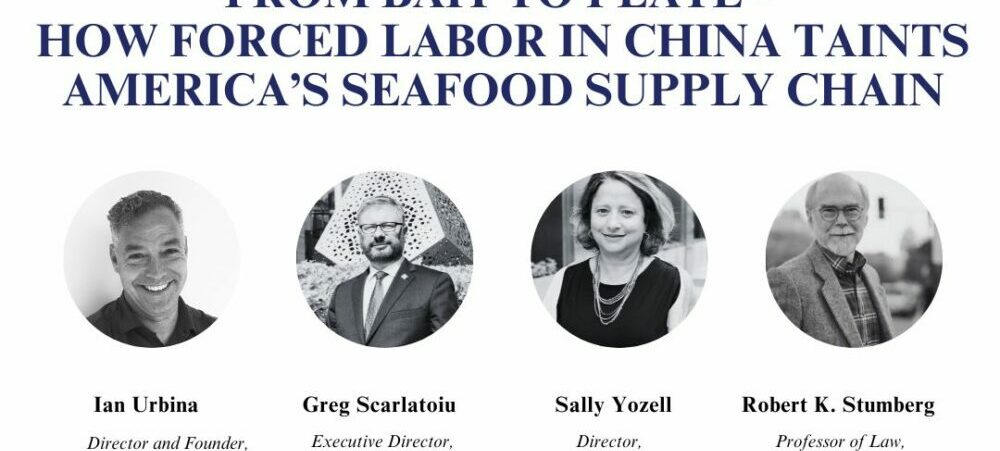
Forced labor in China taints the world’s seafood supply chain. PRC-based companies that use the forced labor of Uyghurs and North Koreans process a large amount of seafood for the U.S. market. From fish sticks to calamari—these products end up in the supply chains of major restaurants and wholesalers and in the lunches served at American schools and military bases. Recently published reports by The Outlaw Ocean Project detail how forced labor is rampant in China’s seafood industry, including modern slavery on China’s illegal, unreported, and unregulated (IUU) fishing fleet, and in processing plants located in Shandong province of China—where Uyghurs are employed in labor transfer projects. There is also emerging evidence that North Koreans are also working in the fish processing industry in Liaoning province. Squid, pollack, baby clams, and crab are just some of the imports that make it onto the plates of American consumers.
U.S. imports of seafood caught or processed with forced labor may be prohibited under the Uyghur Forced Labor Prevention Act (Public Law 117-78), the Countering America’s Adversaries Through Sanctions Act (Public Law 115-44), and other laws. Nevertheless, the U.S. Government, major grocery chains, and restaurants continue to purchase seafood caught and processed using forced labor in China.
This hearing will continue the CECC’s efforts to ensure that PRC goods and products made with forced labor do not enter U.S. markets. Witnesses will provide testimony about the human rights abuses on board China’s IUU fishing fleet, the seafood supply chains tainted by forced labor in China, and the exposure of the U.S. Government and American consumers to these supply chains. Witnesses will also provide recommendations for U.S. action.
The recording of the hearing is available to view at https://www.youtube.com/live/jYHqJvLrQNU.